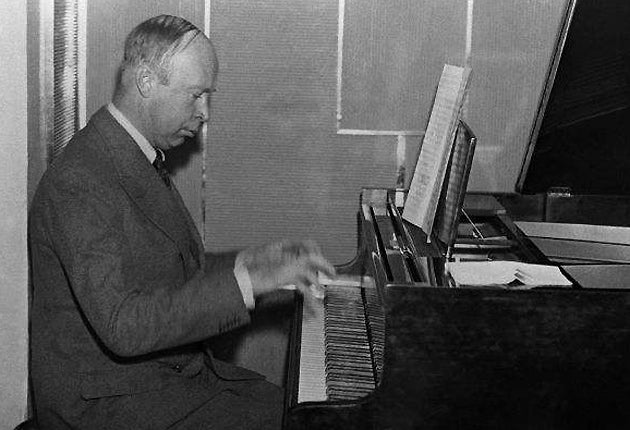Premiere at last for Prokofiev's pre-Stalin War and Peace opera

Your support helps us to tell the story
From reproductive rights to climate change to Big Tech, The Independent is on the ground when the story is developing. Whether it's investigating the financials of Elon Musk's pro-Trump PAC or producing our latest documentary, 'The A Word', which shines a light on the American women fighting for reproductive rights, we know how important it is to parse out the facts from the messaging.
At such a critical moment in US history, we need reporters on the ground. Your donation allows us to keep sending journalists to speak to both sides of the story.
The Independent is trusted by Americans across the entire political spectrum. And unlike many other quality news outlets, we choose not to lock Americans out of our reporting and analysis with paywalls. We believe quality journalism should be available to everyone, paid for by those who can afford it.
Your support makes all the difference.Completed – or so he thought - at the moment of his country’s greatest peril with Hitler’s forces camped in the Moscow suburbs, Sergei Prokofiev’s operatic adaptation of Tolstoy’s War and Peace must have seemed a powerful and patriotic artistic response to the horrors of the conflict engulfing his homeland. But it didn’t work like that in Stalin’s world.
Even in the depths of danger Soviet cultural commissars were alive to the taint of bourgeois sentiment and the composer spent more than a decade revising his score under increasing duress to please his political masters. In the end, dying as he did on the same day as Stalin in 1953, he never lived to see his work performed in its entirety.
Later this month British audiences will be treated to the world premiere of the “de-Sovietised” version of the operatic masterpiece written as Prokofiev intended it when it is performed by The Royal Scottish Academy of Music and Drama and Scottish Opera at the Theatre Royal in Glasgow before moving to the Edinburgh Festival Theatre.
At three hours long and boasting a cast of 75 with full orchestra, even in its cut down original form it is every bit as epic as Tolstoy’s source material.
The new version has been recreated by Prokofiev expert Dr Rita McAllister, a former vice principal at the Academy who spent two years visiting Russia where she was given unprecedented access to the manuscripts by the composer’s family who are expected to attend the Scottish premiere.
She said that many of the duets which gave the original its banter between characters and sense of comedy have now been reinstated while some of the sweeping arias, choruses and the choral epigraph which Prokofiev was persuaded to add in order for it to be cleared for performance, have been excised.
“Prokofiev was a very patriotic composer and had been working on this since the mid 1930s. When war started you would have thought it was a recipe for success. But his changes could never keep up with the changes of policy and opera was seen by Stalin as incredibly powerful propaganda tool. After cinema it was what he really paid attention to and he knew the effect it could have on people,” said Dr McAllister.
Not that the officially sanctioned version is not without its merits, she said. “There is some very good music in the new version he produced. The ball scenes beat Tchaikovsky but that is not the point. It is not a case of whether it is better. This is more what Prokofiev intended and that will help future composers,” she added.
Prokofiev had been close to the Bolsheviks before the Revolution but spent most of the early years of the Soviet Union working in New York and Paris. By the time of his return in 1935 cultural life was being monitored. The objective of the so-called Composers Union was to police the likes of Prokofiev and his more outspoken contemporary Dmitri Shostakovich for alleged “formalist tendencies” considered to be intellectually elitist and anti-Soviet. But freedom, such as there was in war time Soviet Union, came to a juddering halt with the 1948 Zhdanov Decree, which signalled another crackdown on artistic self-expression.
By this time Prokofiev was old, sick and unhappy and prepared to make the necessary changes to ensure to what he saw as his late masterpiece in order for it to reach the public, Dr McAllister said. “It gradually got added to but with increasing reluctance on his part. He was never in danger of his life like Shostakovich but by 1948 he did not really care less. He had quite a lot of sympathy for socialism as he saw it though that didn’t coincide with Stalin’s view,” she said.
Join our commenting forum
Join thought-provoking conversations, follow other Independent readers and see their replies
Comments